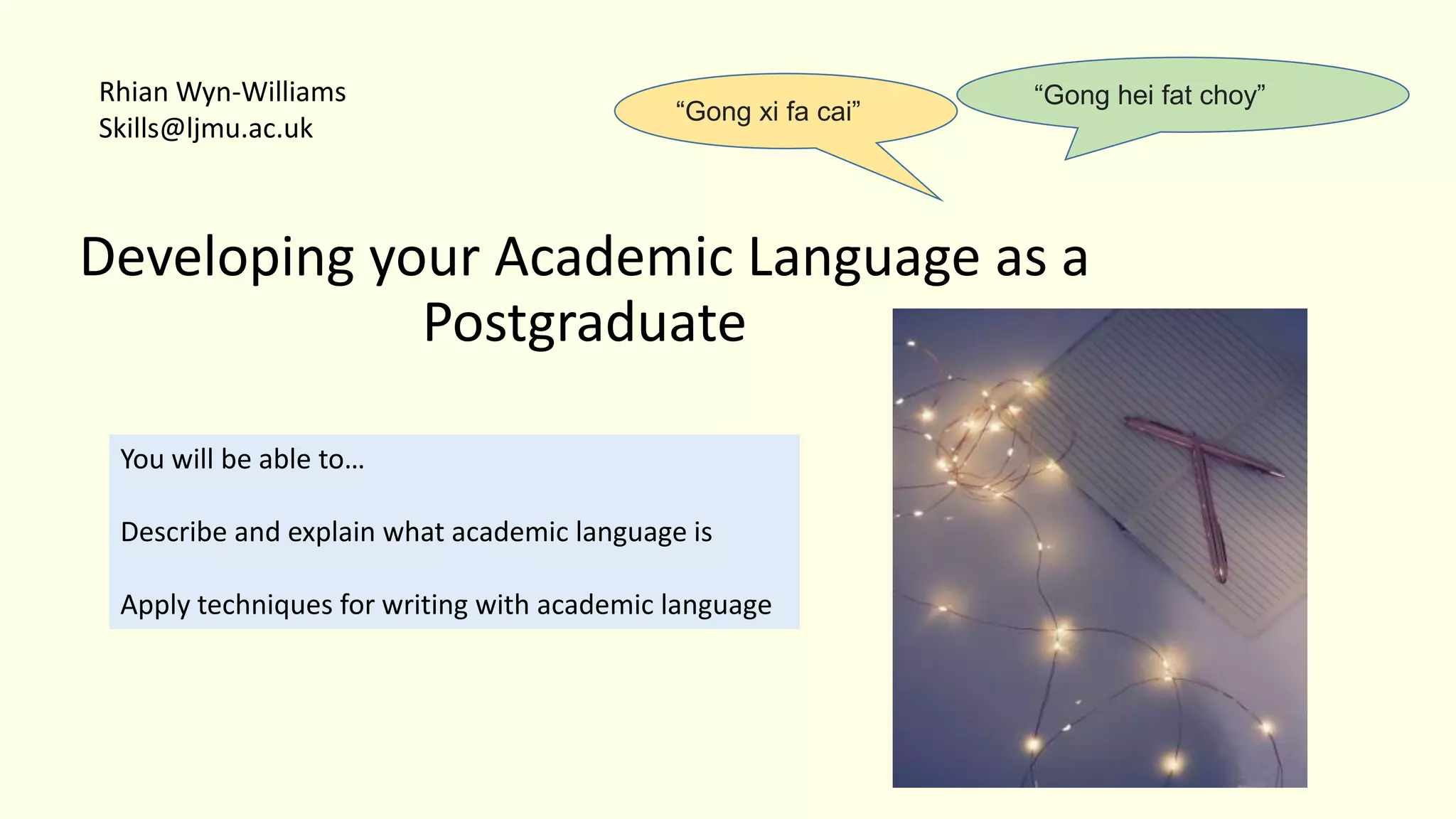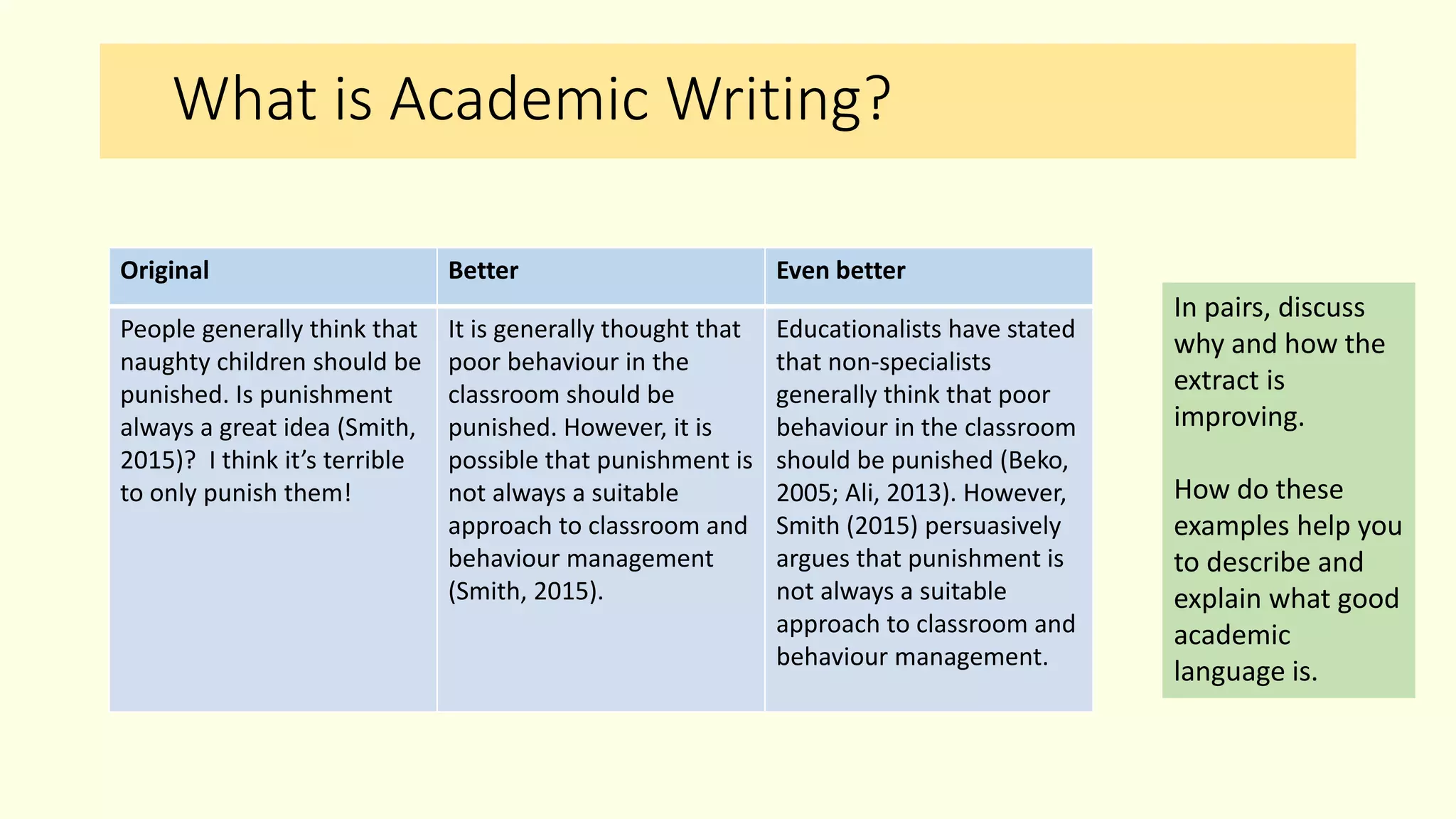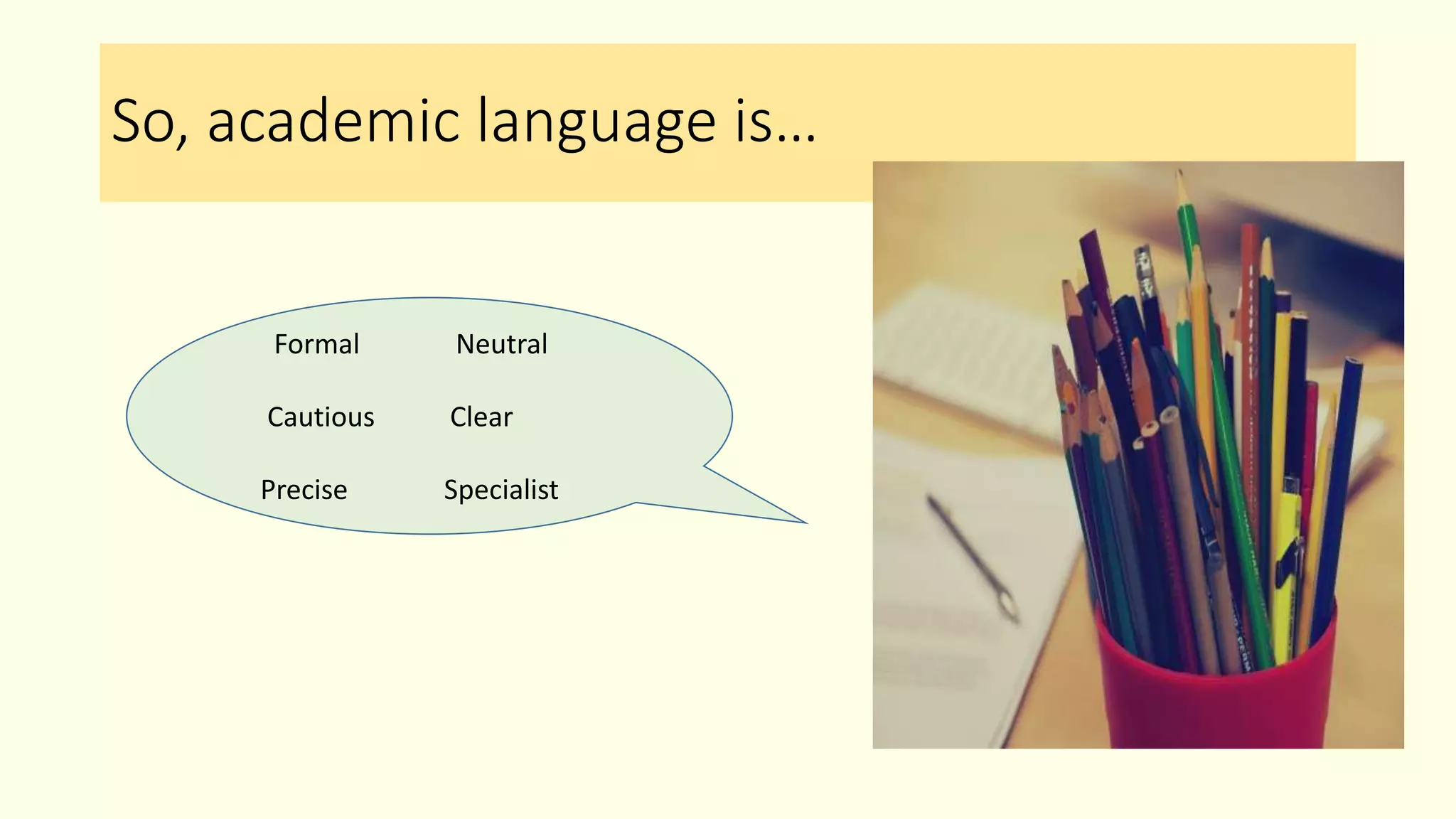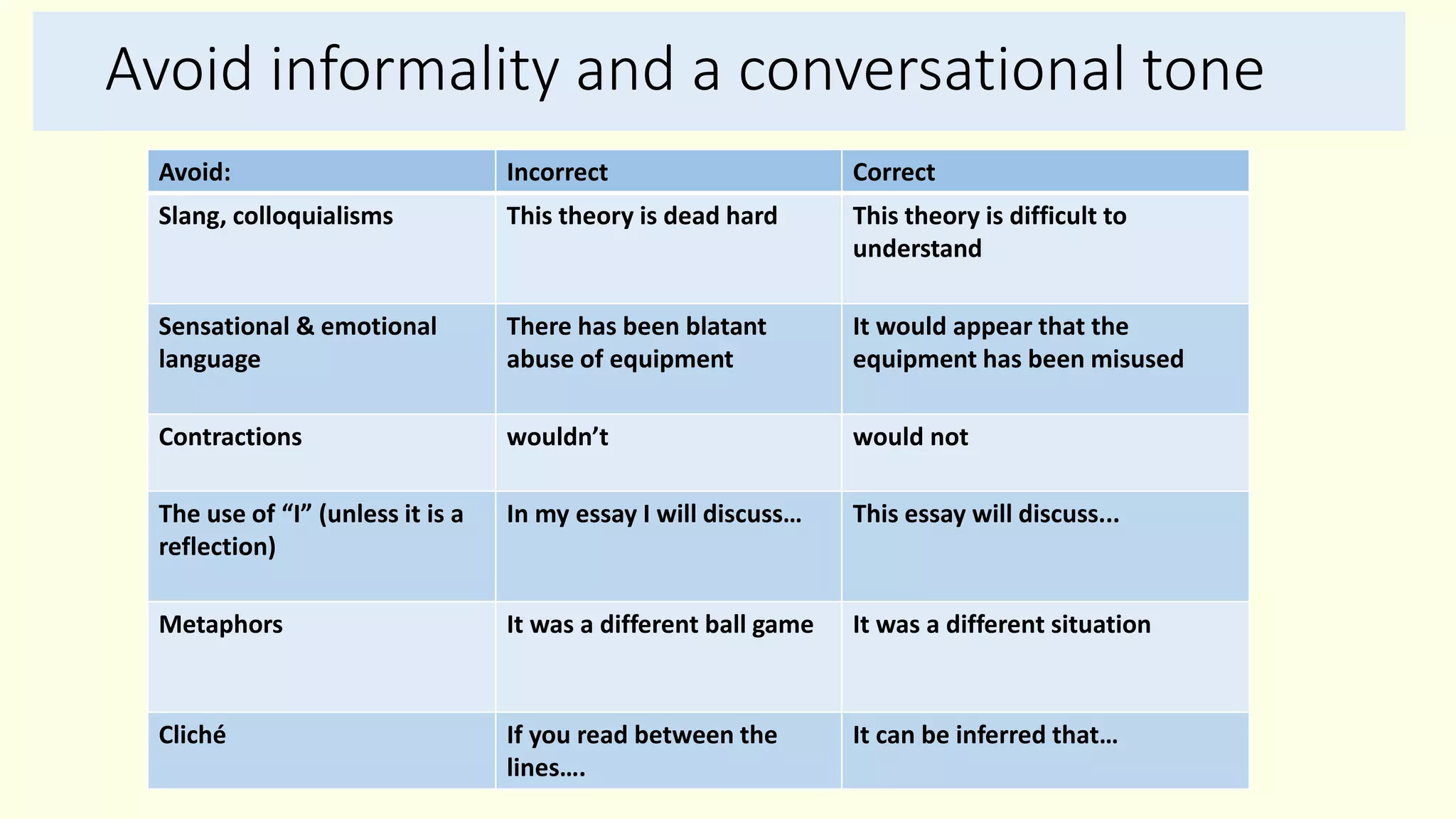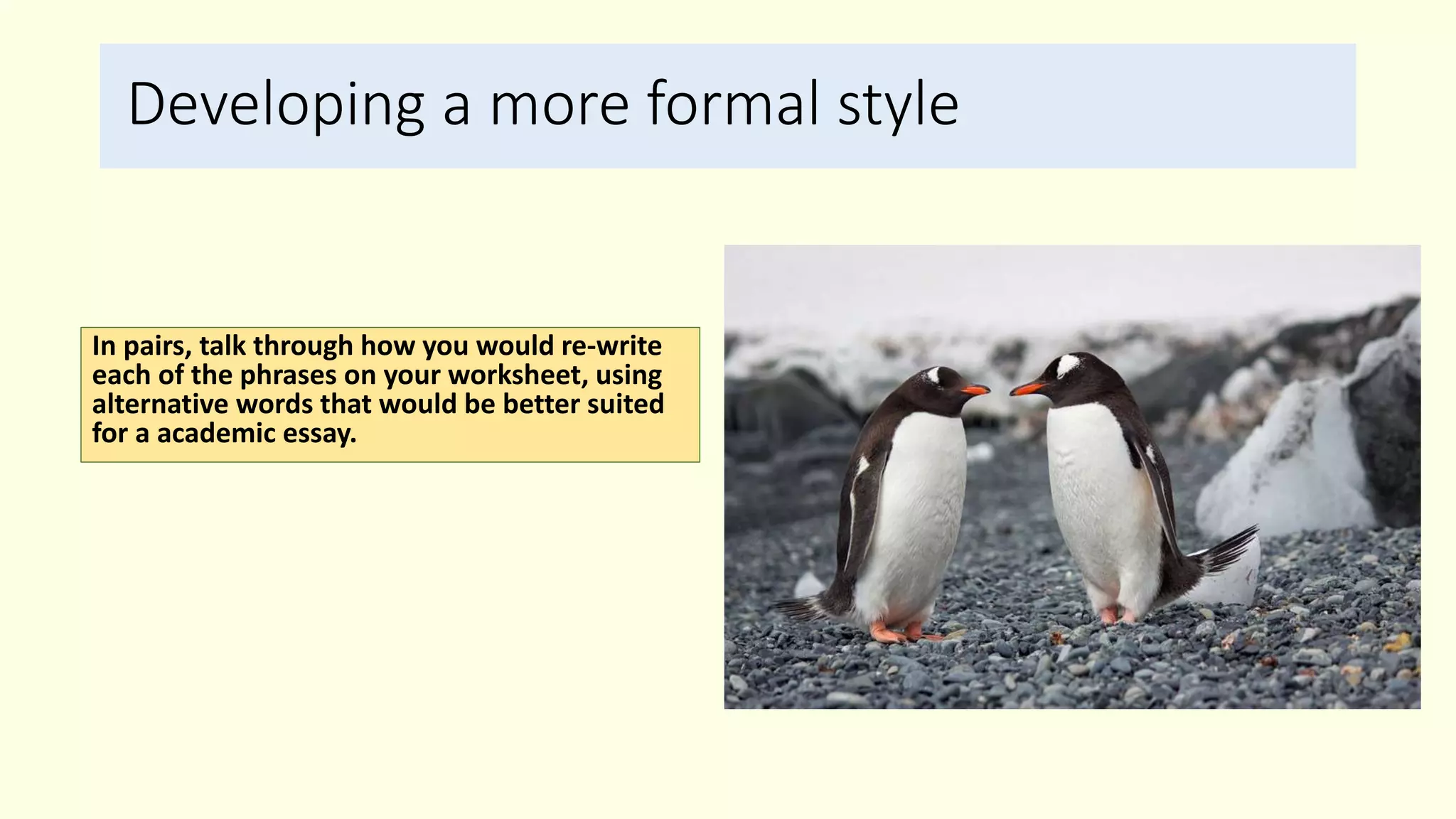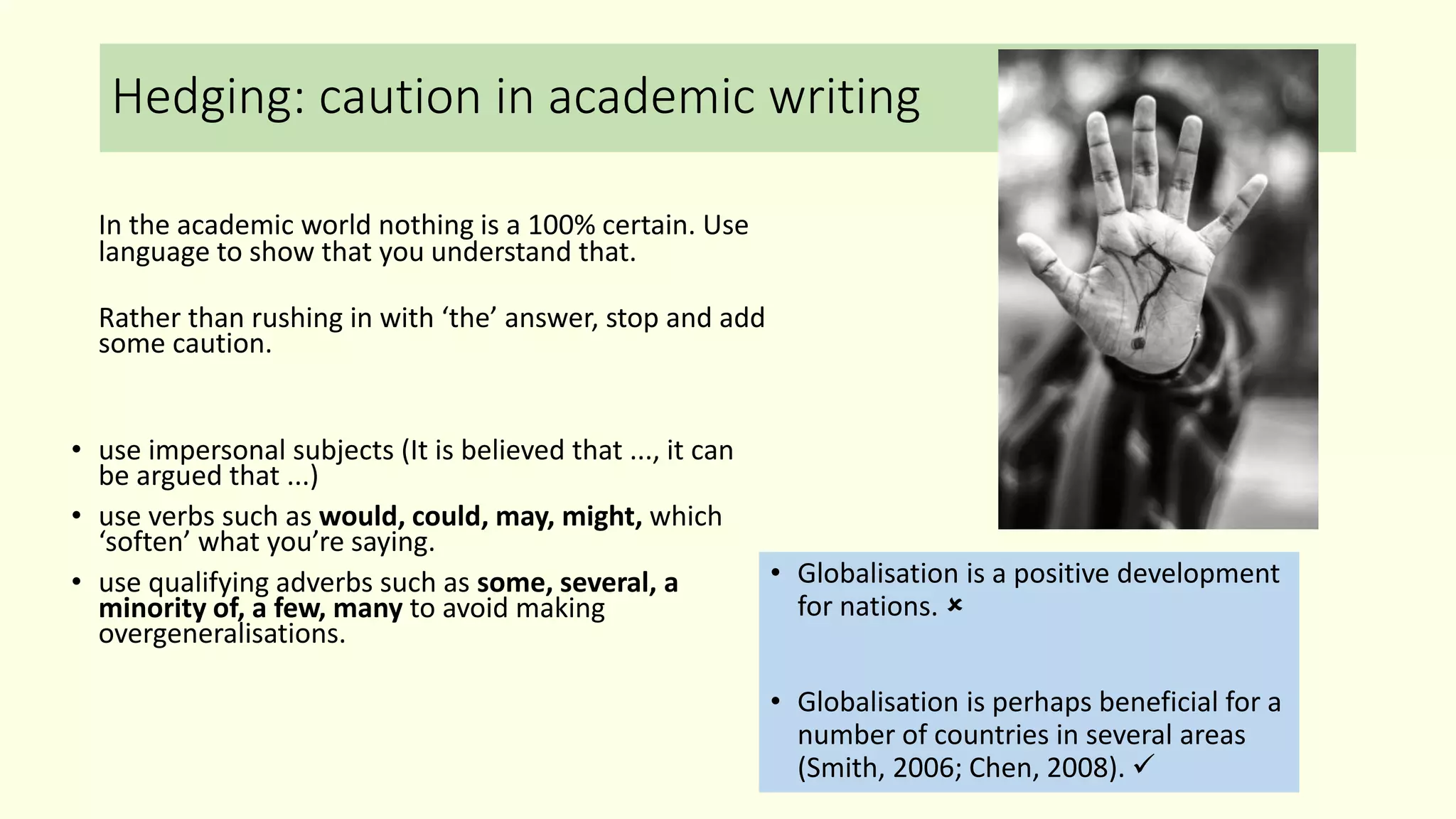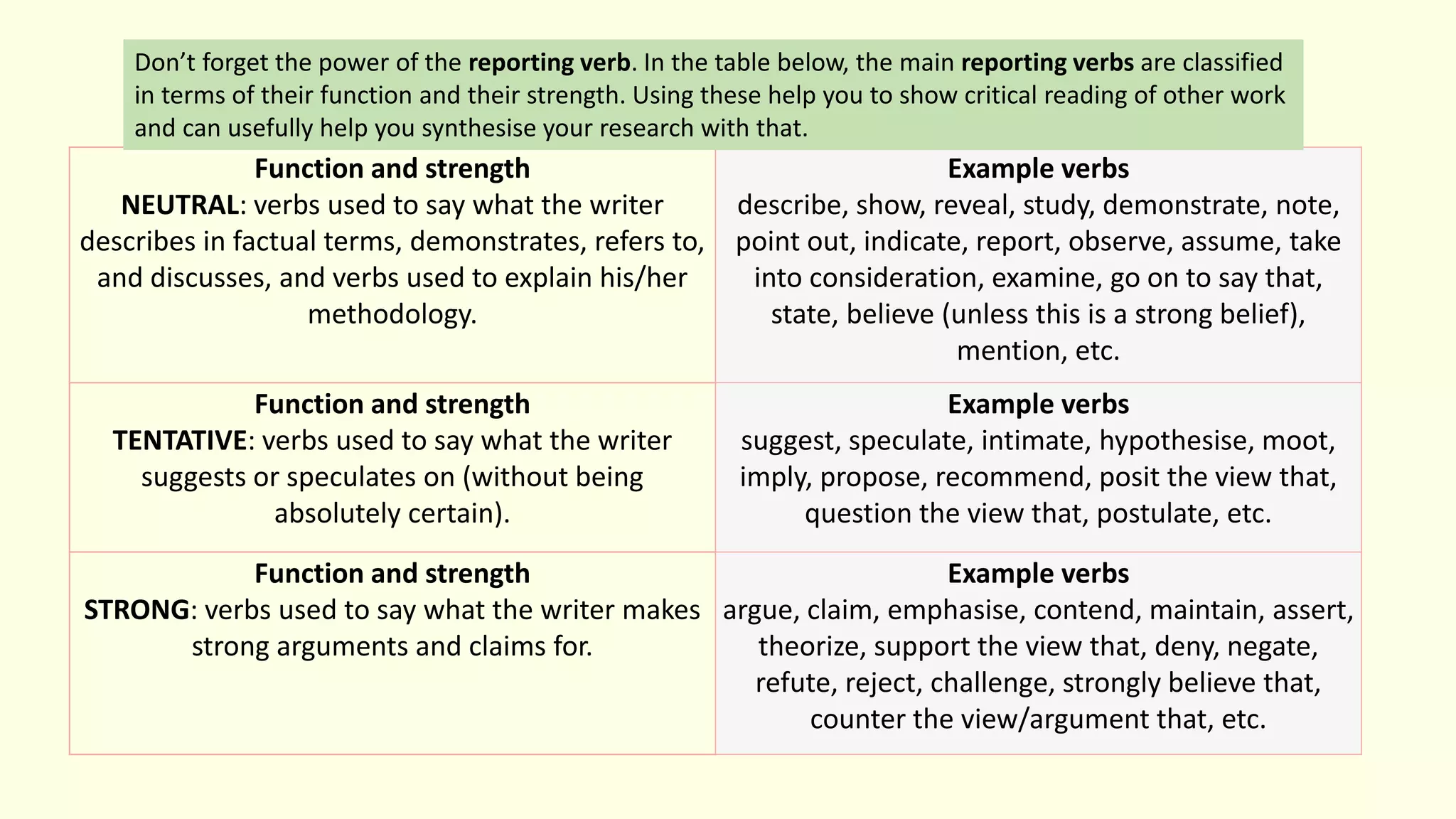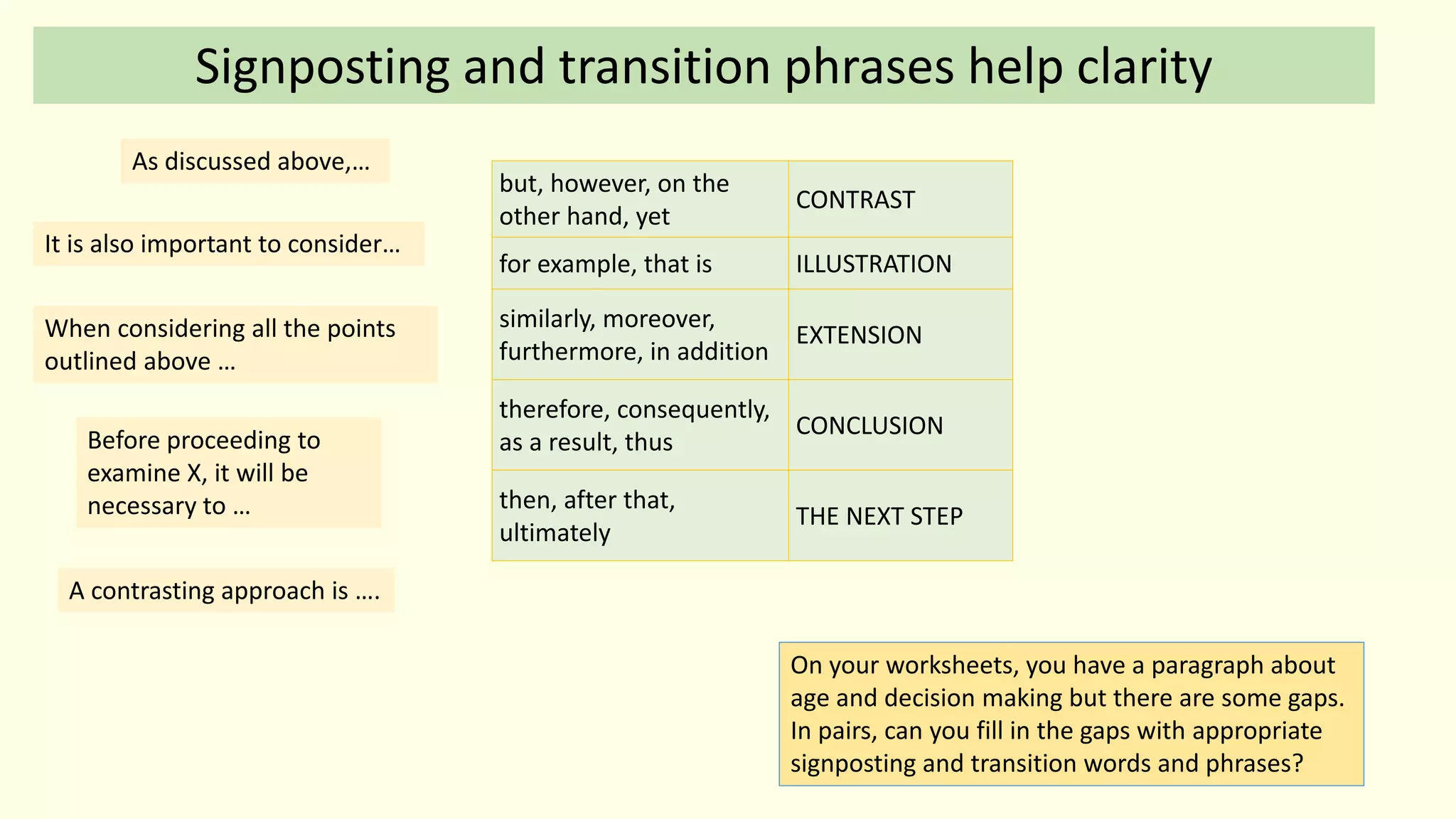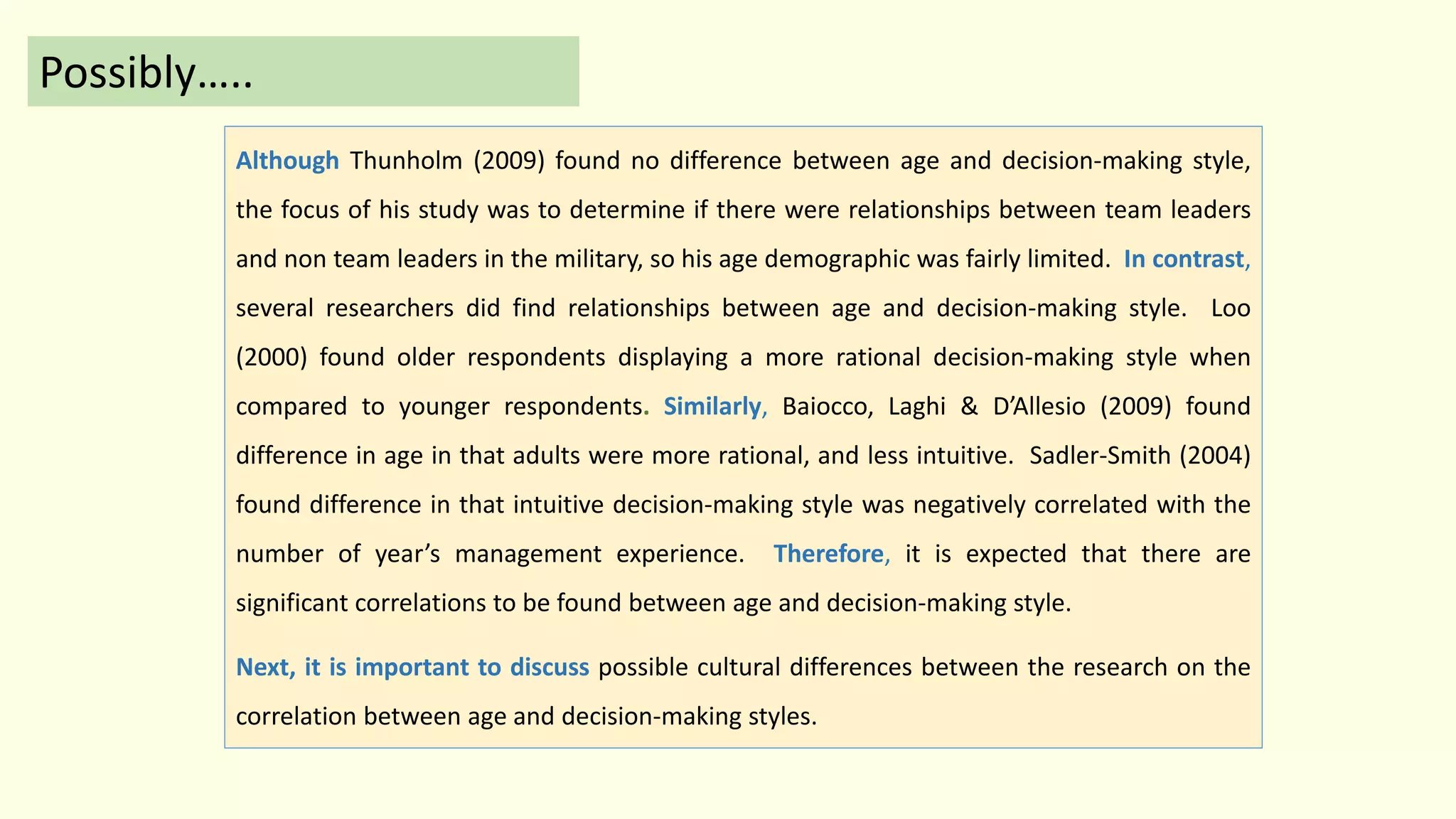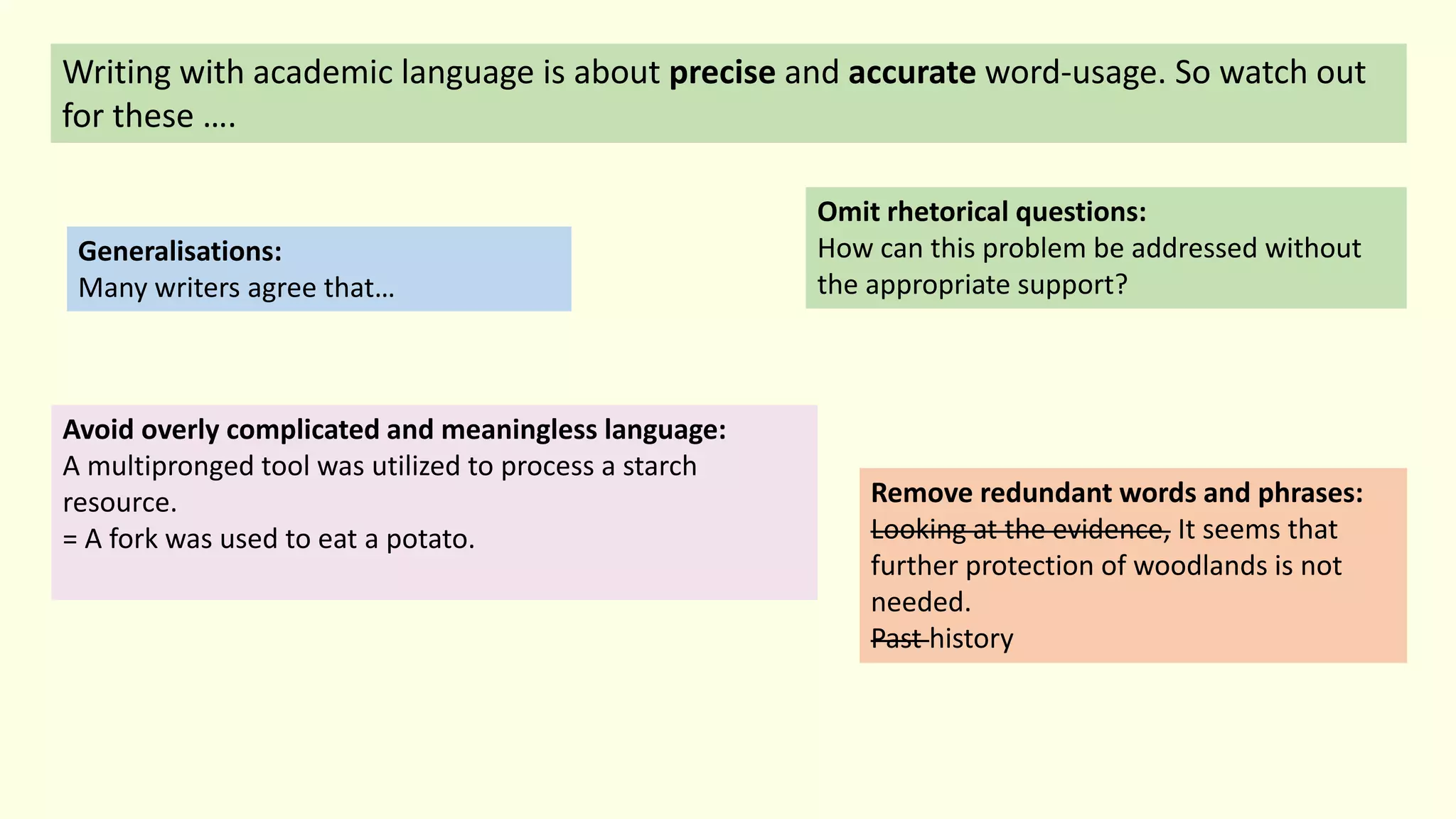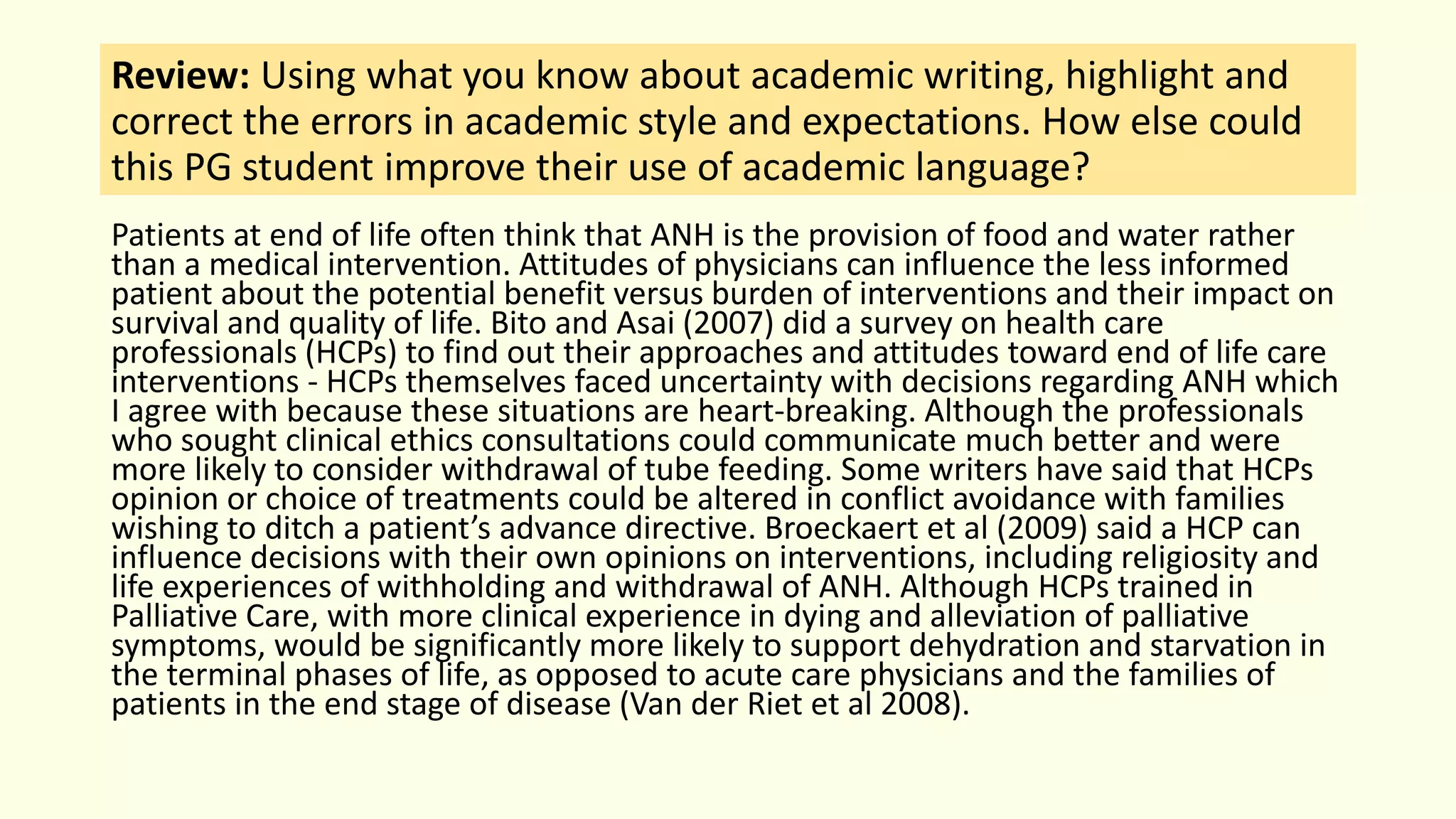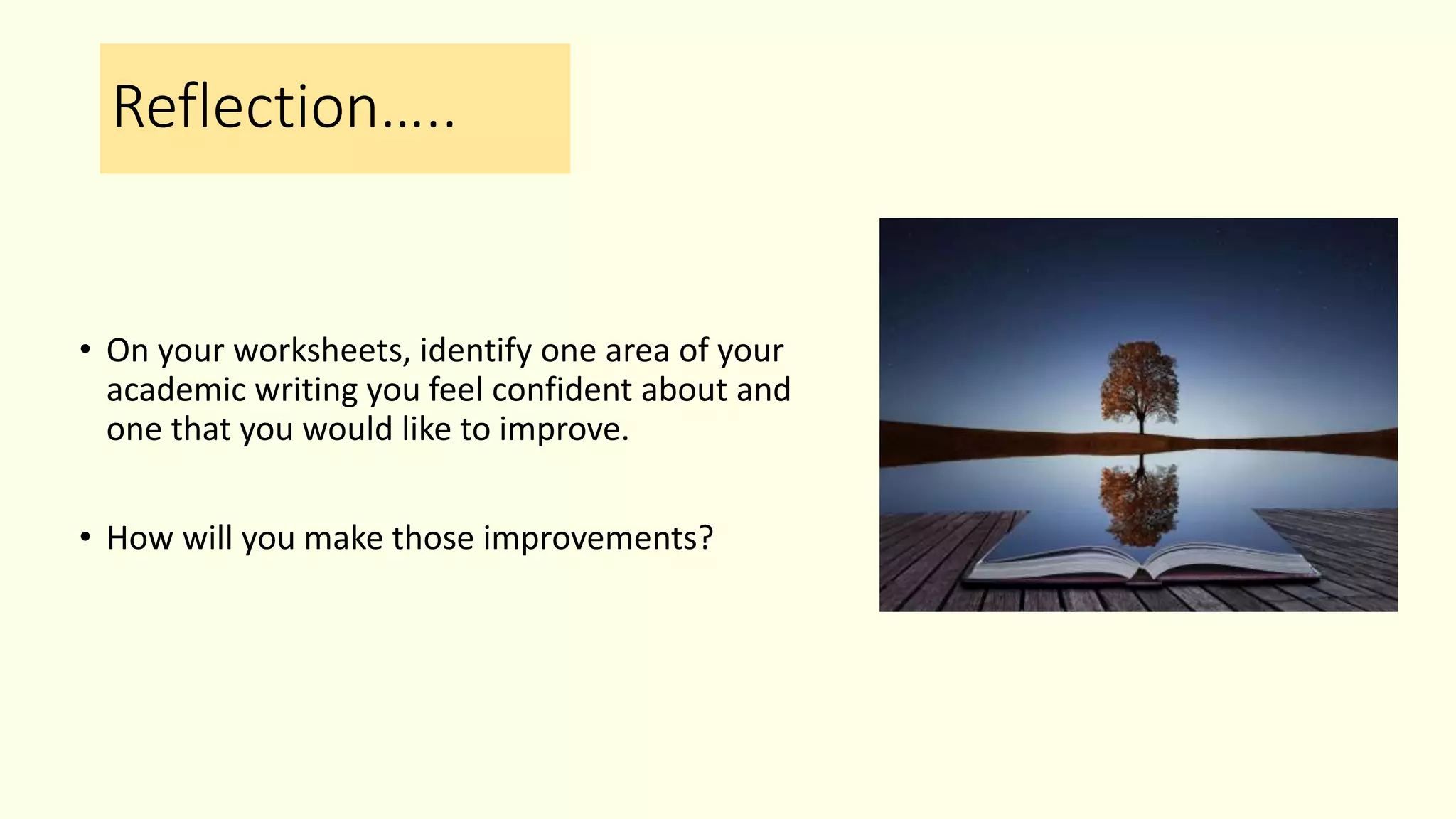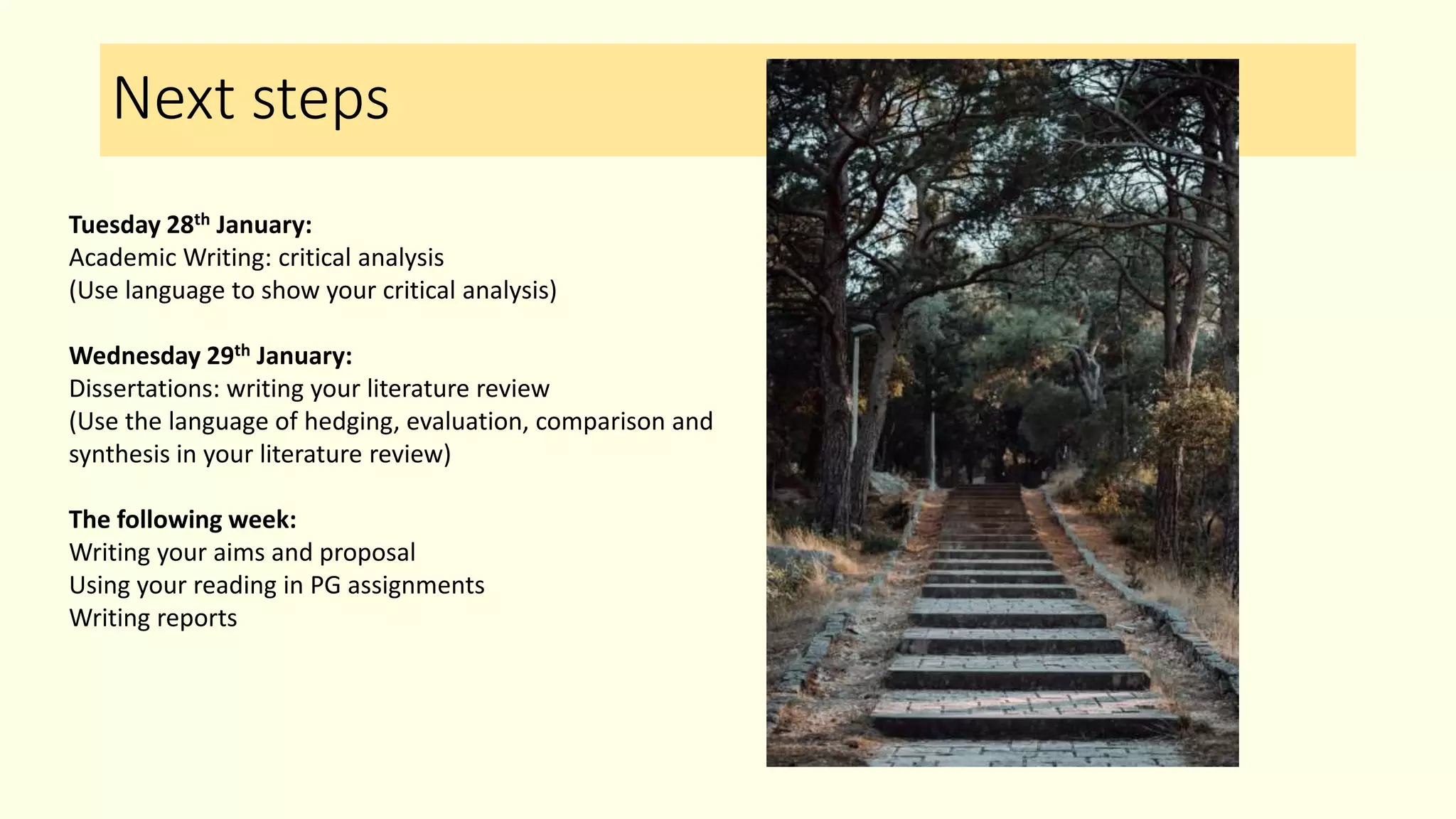This document provides guidance for postgraduate students on developing academic language skills. It describes what academic language is and techniques for writing with academic language. Key aspects of academic language include using a formal, neutral, precise and specialist style. The document advises avoiding informal language and using hedging to express ideas tentatively. It also discusses signposting, transition phrases, and improving word choice to communicate meaning clearly without unnecessary complexity.
